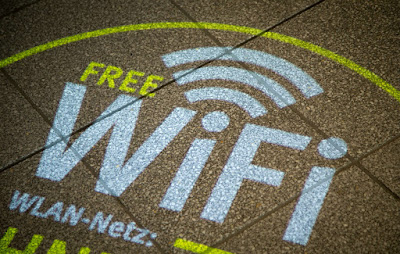Home
Unlabelled
Germany's (dis)connectivity: Can the broadband Internet gap be bridged?
Germany's (dis)connectivity: Can the broadband Internet gap be bridged?
In German life, there are two complaints shared by nearly everyone: the internet is too slow, and the mobile network too patchy.
With state elections on Sunday in Brandenberg and Saxony, many are watching to see how much support far-right party Alternative for Germany (AfD) will garner.
And slow, patchy internet is one issue that the AfD’s representatives mention frequently, complaining that Germany’s technology investments have bypassed the residents in rural areas.
To some extent, the facts bear out these complaints. Studies have shown that internet speeds fall far short of what service providers tout. Broadband internet isn’t available in parts of the country, and 4G coverage remains sketchy. According to rankings from Speedtest, Germany now ranks 34th in the world for its broadband speed, and 42nd in mobile speed.
Those middling results don’t comport with Germany’s status as one of the world’s biggest economies, nor its ambitions to provide the infrastructure needed to power cutting-edge technology and manufacturing industries.
In March, Deutsche Telekom began its rollout of 5G to the country’s big cities, with plans for 300 5G antennas transmitting by the end of the year in six German cities: Berlin, Bonn, Darmstadt, Hamburg, Leipzig, and Munich. Last November, Telekom said it planned to expand 5G to less-populated areas, which board member Dirk Wössner characterized as “breaking with industry tradition.” The expansion is to include cities, towns, autobahns, main roads, train paths, schools and office parks.
But that rollout may not include rural areas, where the company said it would “offer rental space in all its transmission towers to interested third parties.” The German government owns 31.9% of Deutsche Telekom.
And two weeks ago, Vodaphone installed its own 5G antennas in Berlin.
Heidemarie Liebo, a retired woman from Heinersbrück, a municipality in Brandenburg told AFP earlier this month, in Berlin "they want to develop 5G, but we still don't even have a network!”
The below map, translated for The Local by Statista, shows the availability of LTE (mobile phone Internet network coverage) across Germany, and displays the states that are most affected.

Dr. Florian Ranft is a political scientist at Das Progressive Zentrum, an independent think tank that analyzes issues of structural change. He says that Germany’s broadband access is “average at best” compared to other EU countries.
In Brandenberg and Saxony, for example, the large cities -- Berlin (a city-state surrounded by Brandenberg), Potsdam, Leipzig, Dresden and Chemnitz -- have significantly better broadband connectivity rates than the rest of the state. (This map shows rates throughout the country -- zoom in to get more detail.)
He notes that the heart of the issue is speed, not internet access overall.
“It varies quite significantly, even between different communities and different small cities,” he said. In rural areas, “you usually find connectivity [of] 16 Mbit/sec, which is super slow, but you find that coverage pretty much throughout both states… So there’s a big gap between city and rural areas, and it varies significantly between even communities in a rural area. But it's not like you can say they're totally disconnected from the rest of the world.”
Ranft says that the issues of internet speed and mobile coverage have become pervasive for German parties across the political spectrum, the kind of demand “you’ll find in every party manifesto".
He says that’s because there’s a lot of agreement on a few points: the internet is too slow, the government’s efforts to improve speed and accessibility haven’t been sufficient, and that this stuff really matters: “It's largely understood as a key component for value creation in a modern economy.”
The diverging fortunes of urban and rural Germany are already a source of tension, as young people continue to leave their hometowns and move to cities. And the larger the infrastructure gap between the country’s cities and villages, the more potency that connectivity has as a political issue.
Germany's (dis)connectivity: Can the broadband Internet gap be bridged?
 Reviewed by AL-MANSOOR TECH
on
October 16, 2019
Rating: 5
Reviewed by AL-MANSOOR TECH
on
October 16, 2019
Rating: 5
 Reviewed by AL-MANSOOR TECH
on
October 16, 2019
Rating: 5
Reviewed by AL-MANSOOR TECH
on
October 16, 2019
Rating: 5






No comments: